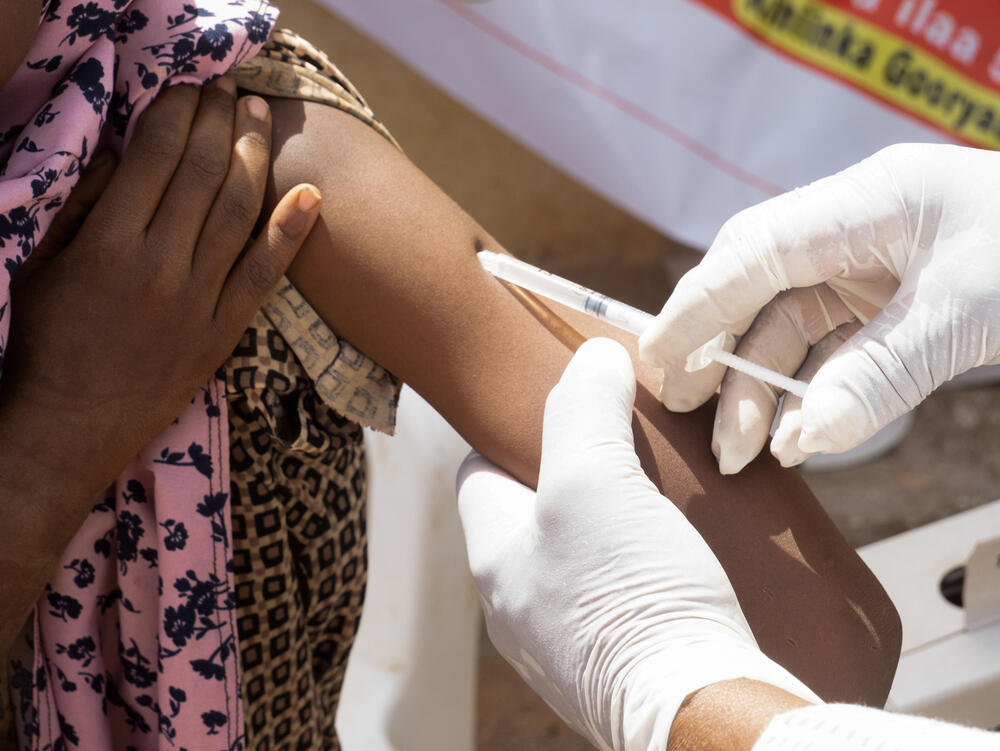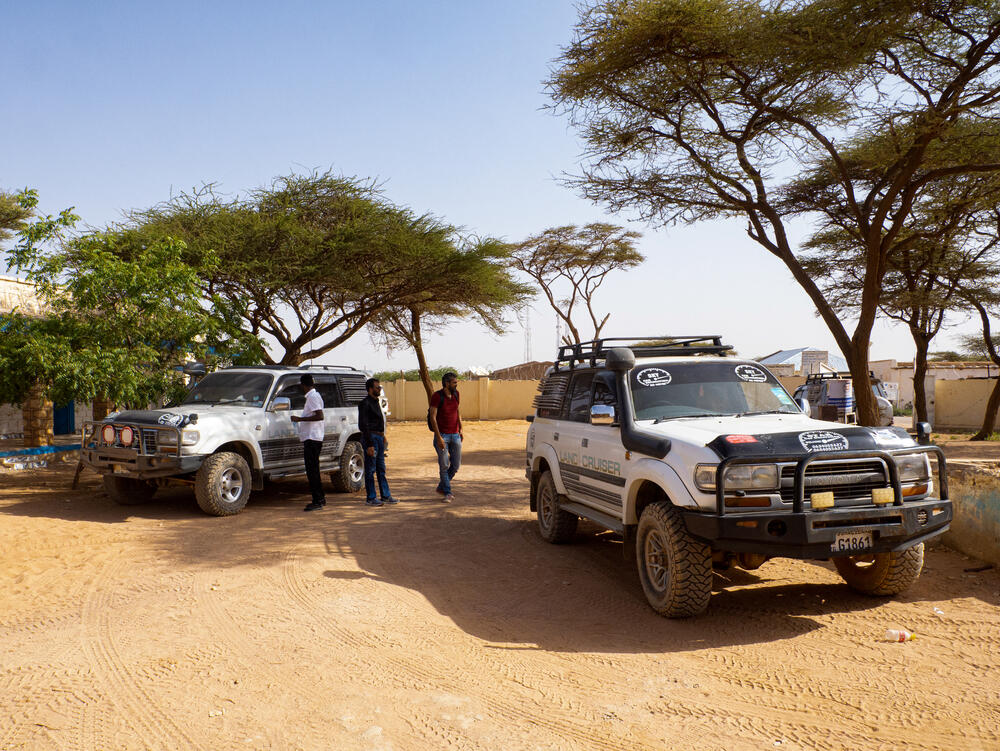Measles: Over 100,000 children vaccinated amid one of world’s largest outbreaks
A crowd of women, children and local leaders are gathered under a large green-leaved tree in Burao, Somaliland. It offers some respite from the scorching sun at Aqil Yare camp for displaced people.
Years of below-average rainfall have driven people to leave their homes for camps like this, but a lack of access to clean water and sanitation has created ideal conditions for an infectious disease outbreak.
The people here have come for a vaccination campaign. Among them is Hiis Ali, a mother whose child barely survived an ongoing measles outbreak that is claiming the lives of so many others.
“I now know that unvaccinated children can easily contract measles. My child was not vaccinated and he contracted measles. He had a high fever but luckily survived,” she says.
“Other children in the camp have also had very severe illnesses.”
When Hiis heard that teams from Médecins Sans Frontières / Doctors Without Borders (MSF) were vaccinating children against measles, she was keen to get her two youngest protected from the highly contagious and deadly disease.
A massive outbreak
Somalia and Somaliland are facing one of the largest outbreaks of measles in the world, according to the World Health Organization. MSF teams have seen more than 7,000 patients with measles since the beginning of the year – mostly children under five years old.
The measles virus is endemic in Somalia and Somaliland, and, although several vaccination campaigns have been conducted, outbreaks continue unabated. The number of children with measles in MSF-supported healthcare facilities has been rising, and the disease is increasingly affecting those far above the age of five.
However, the treatment of measles and the task of setting up vaccination campaigns in Somalia and Somaliland is a huge challenge as many displaced people and communities live in remote and hard-to-reach areas.
Added to this, most large families live under one roof in the crowded displacement camps, creating the perfect conditions for the rapid spread of disease.
Isolation and vaccination
Responding to the emergency, in May, our teams set up two ‘measles patient management’ centres to tackle the disease in Somaliland, with isolation rooms and a total of 110 beds. The two sites, in the cities of Hargeisa and Burao, can provide care to children suffering from complications of the virus.
In both cities, our staff have been seeing high numbers of cases, treating over 1,250 patients as of mid-July.
We have also set up a centre in Las Anod General Hospital. Since February, our team here has treated 780 patients, most of them children.
MSF then partnered with Somaliland’s Ministry of Health Development (MoHD) to conduct a mass vaccination campaign in the districts of Burao and Oodweyne. We also donated vaccines to healthcare authorities to carry out campaigns in Aynabo and Buuhoodle.
In July, the vaccination campaign reached 106,000 children under five in Somaliland, including displaced people and the communities who host them.
After protecting 86 percent of the target number of children, this is one of the biggest single measles campaigns ever undertaken in the region.

Help us prepare for the next emergency
“There is low-base vaccination coverage in Somalia and Somaliland,” says Mohammed Musoke, MSF medical coordinator.
“It is challenging to conduct vaccinations because people are dispersed, so there are a lot of complex logistics involved. Our teams really have to go from house to house. Some of these houses are far from each other and most people have moved so they are not in one place.”
Since early this year, MSF has been calling on health authorities and other organisations working in Somaliland to urgently implement a wide-coverage reactive vaccination campaign, as well as enhanced routine vaccinations for children. All to slow the transmission of the virus and reduce the number of deaths.
Beyond this, MSF will continue to provide support with measles surveillance to alert the MoHD when we see unusual spikes in case numbers, as well as medical support, supplies and staff to treat patients and tackle the virus.
MSF and measles
Measles is one of the leading causes of death among young children.
It is a highly contagious viral disease. A safe and effective vaccine has existed since the 1960s but outbreaks still occur due to ineffective or insufficient immunisation programmes.

